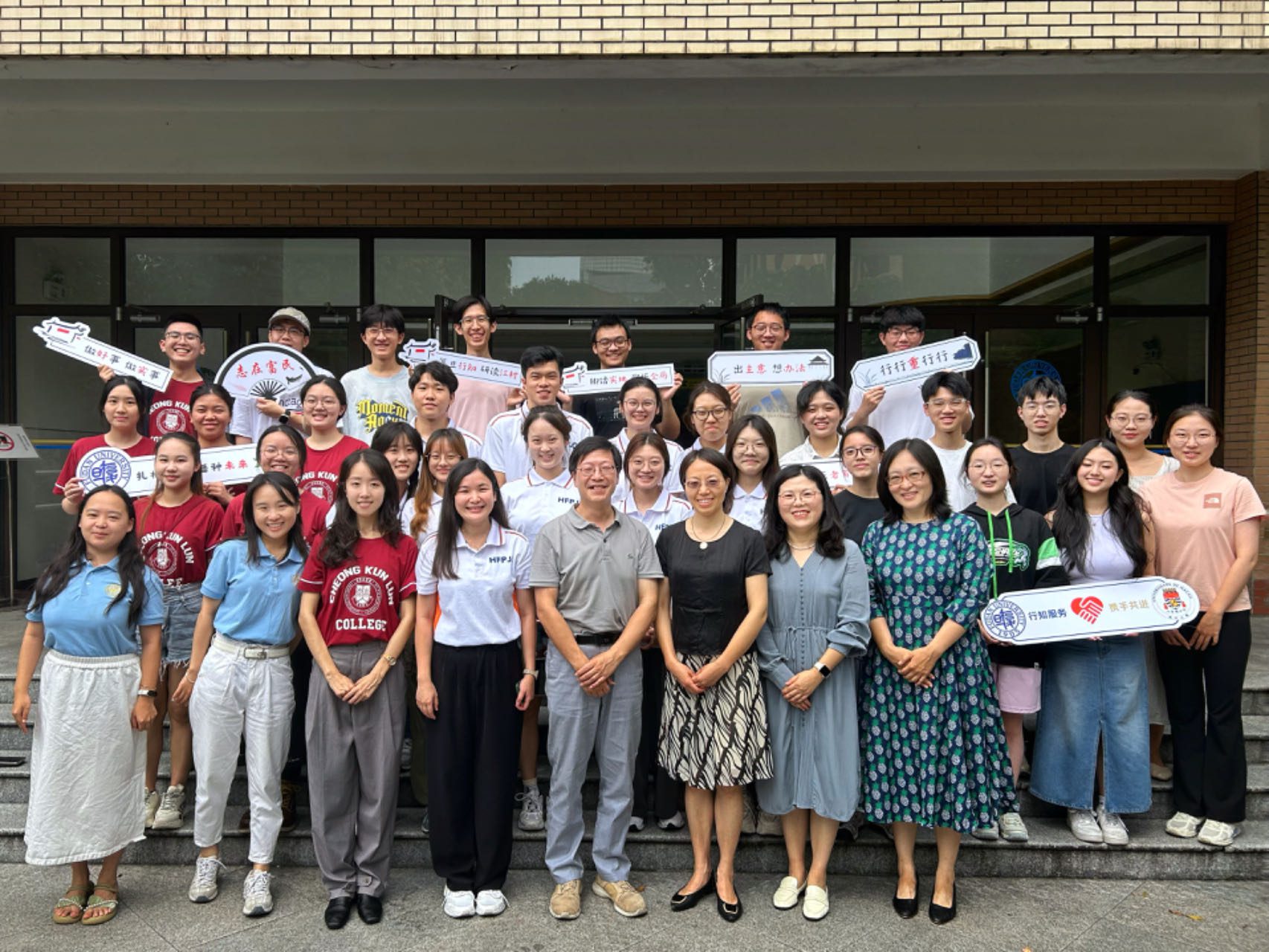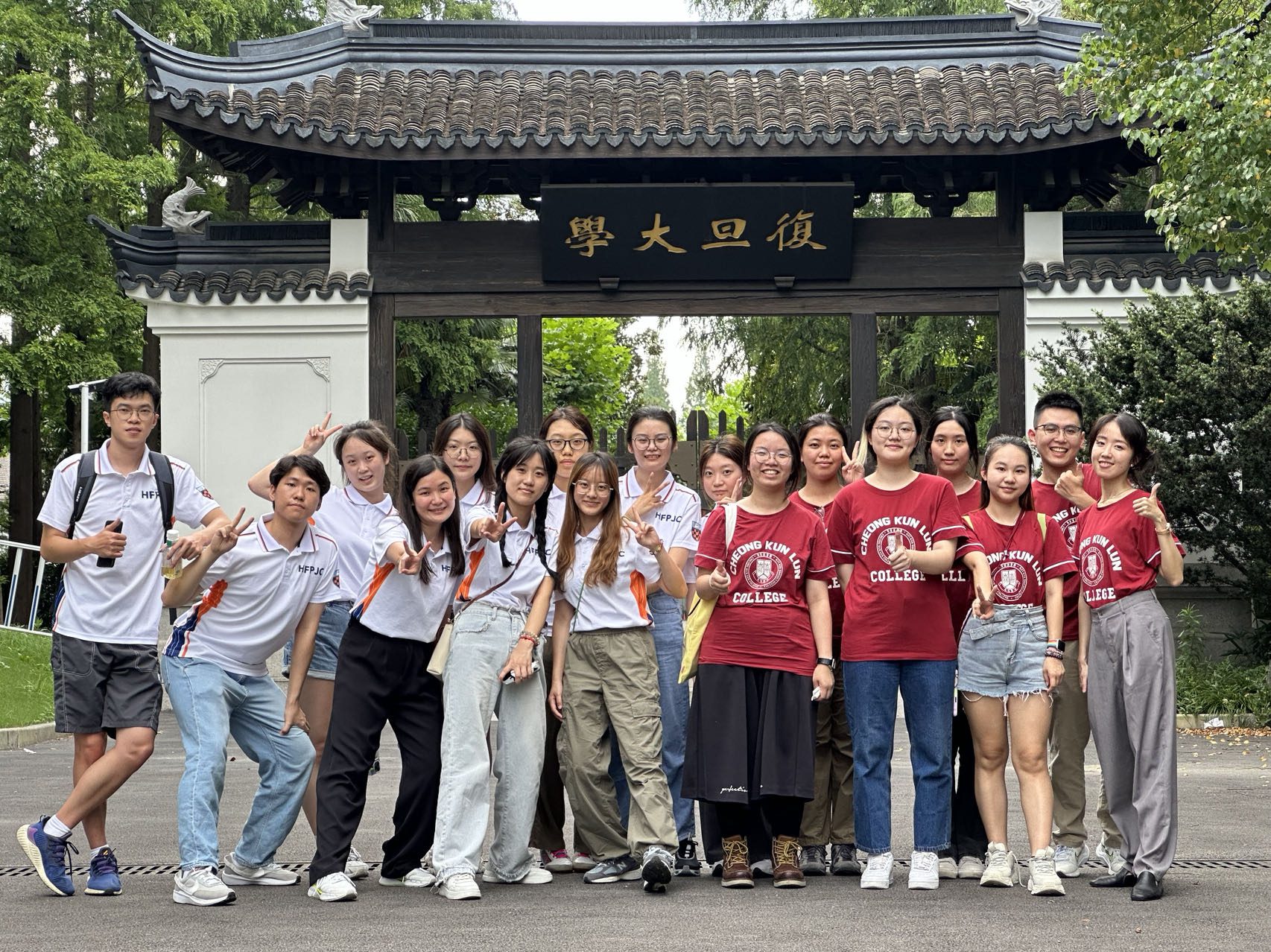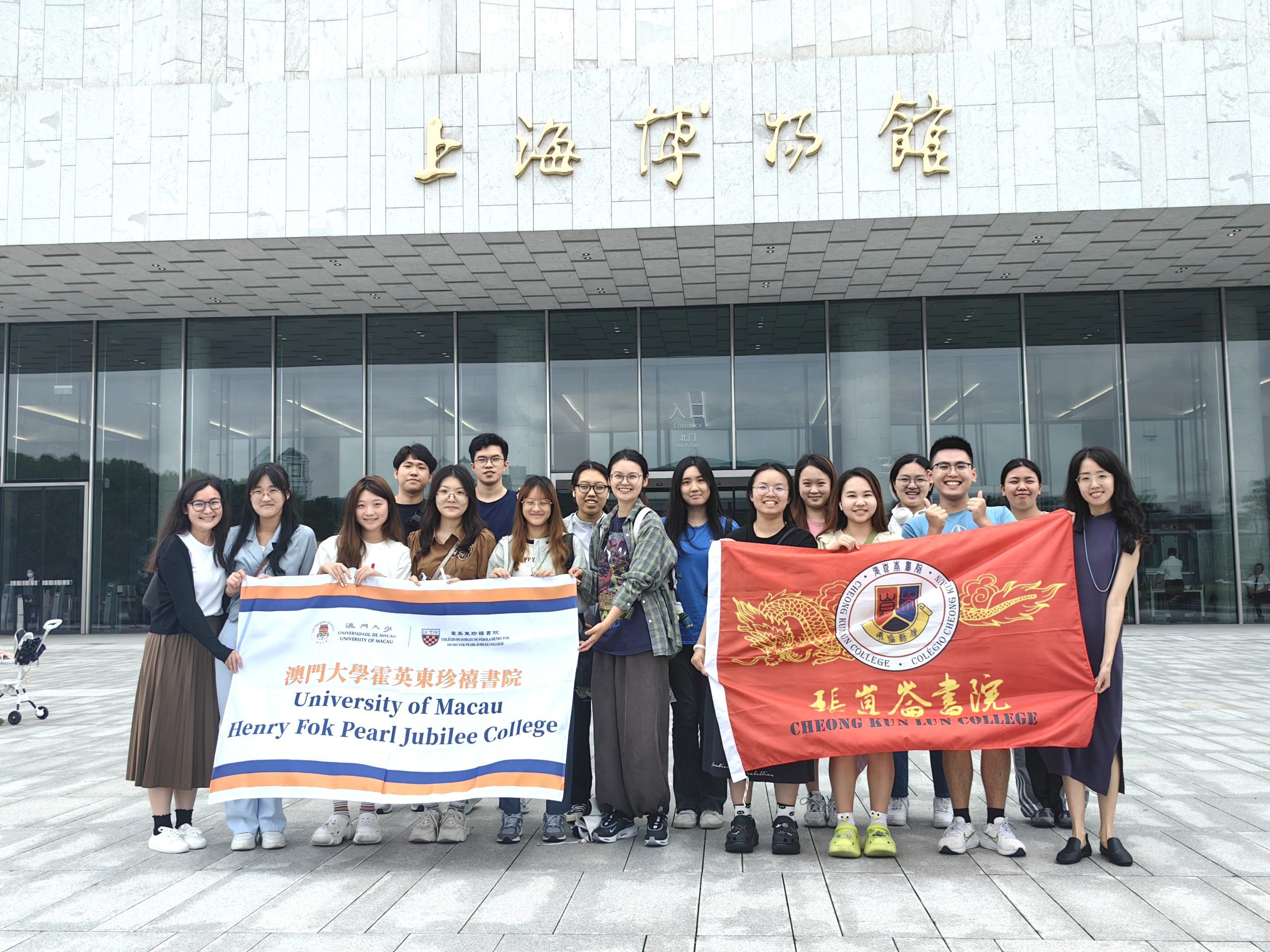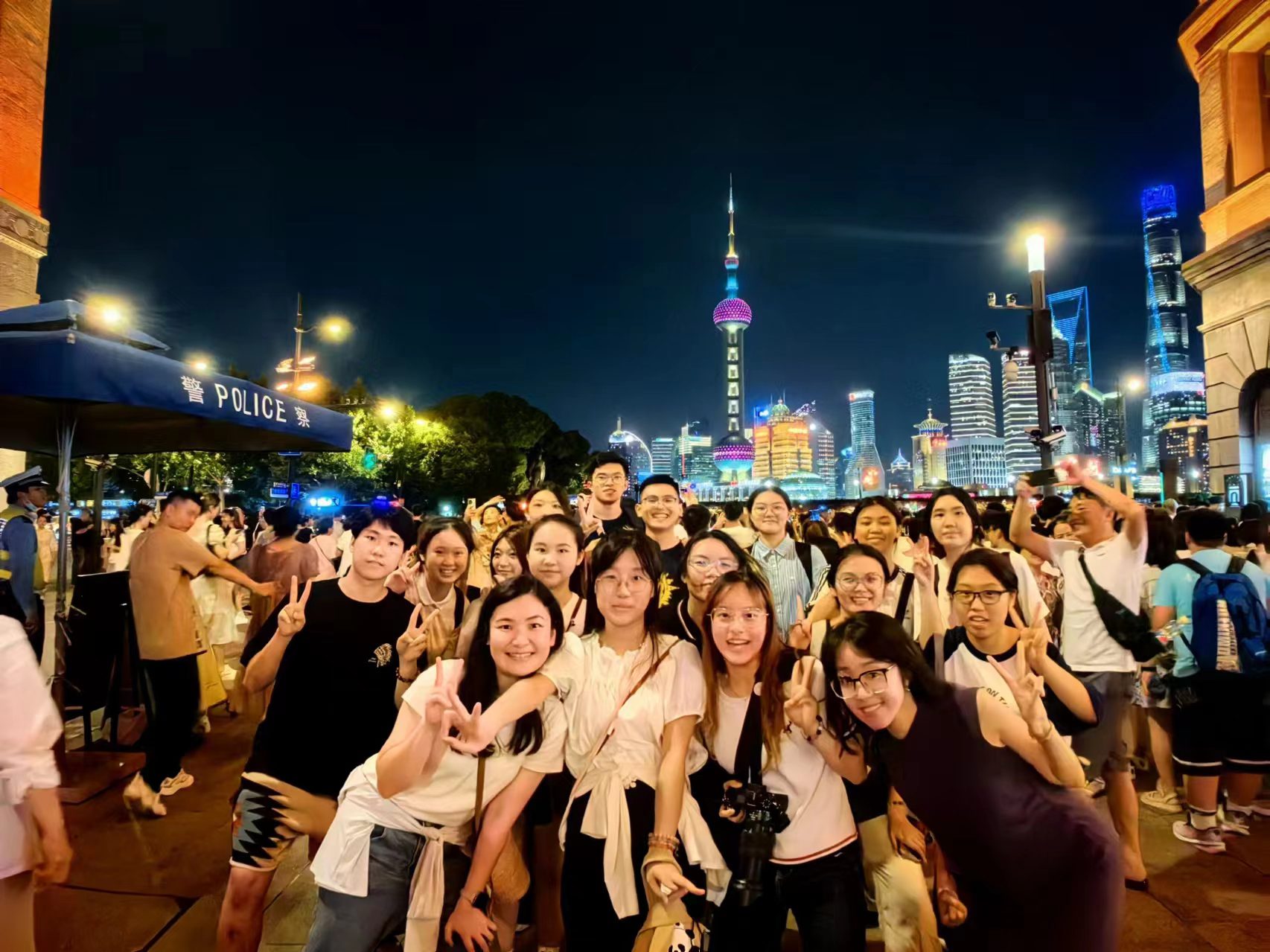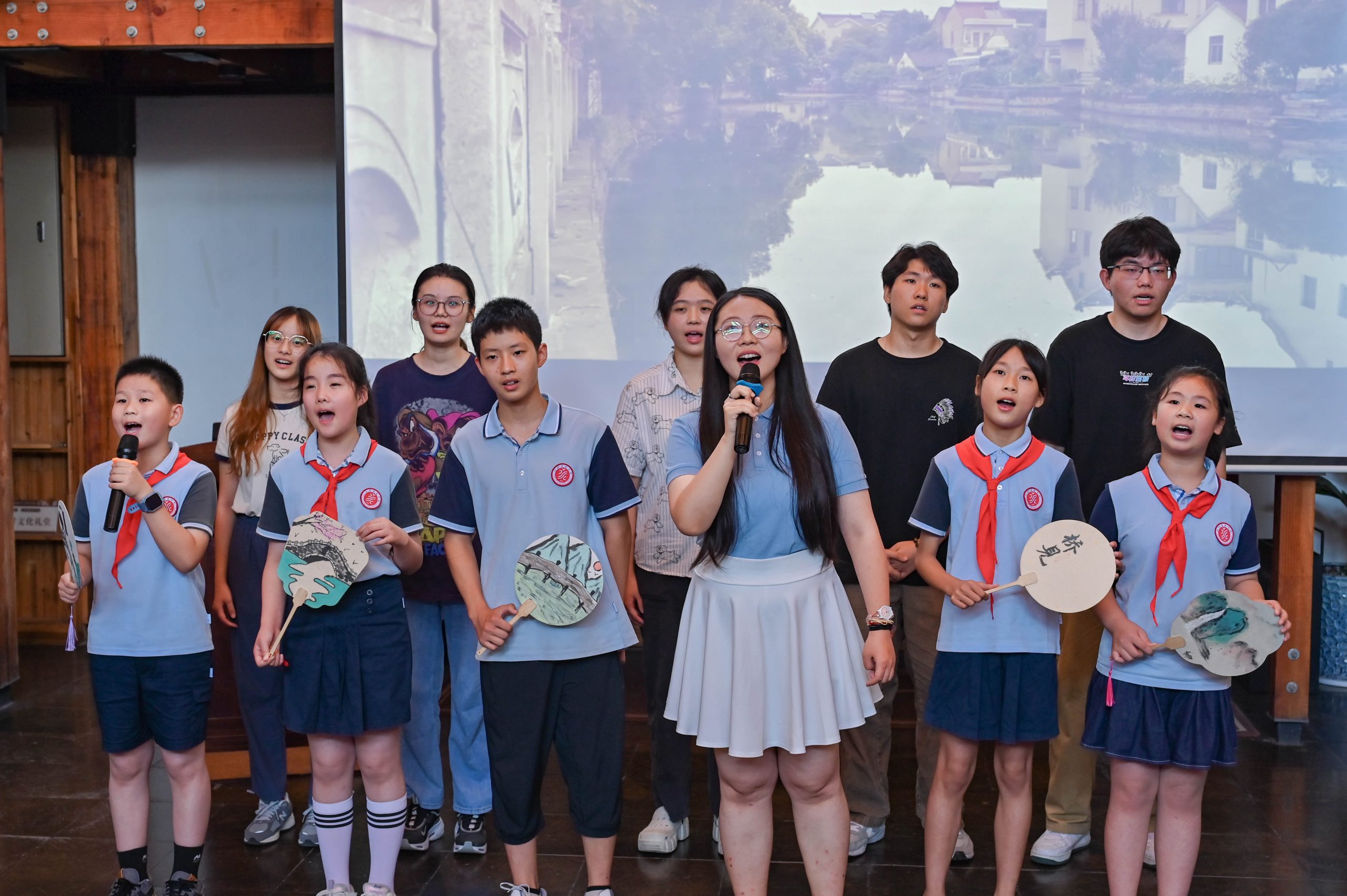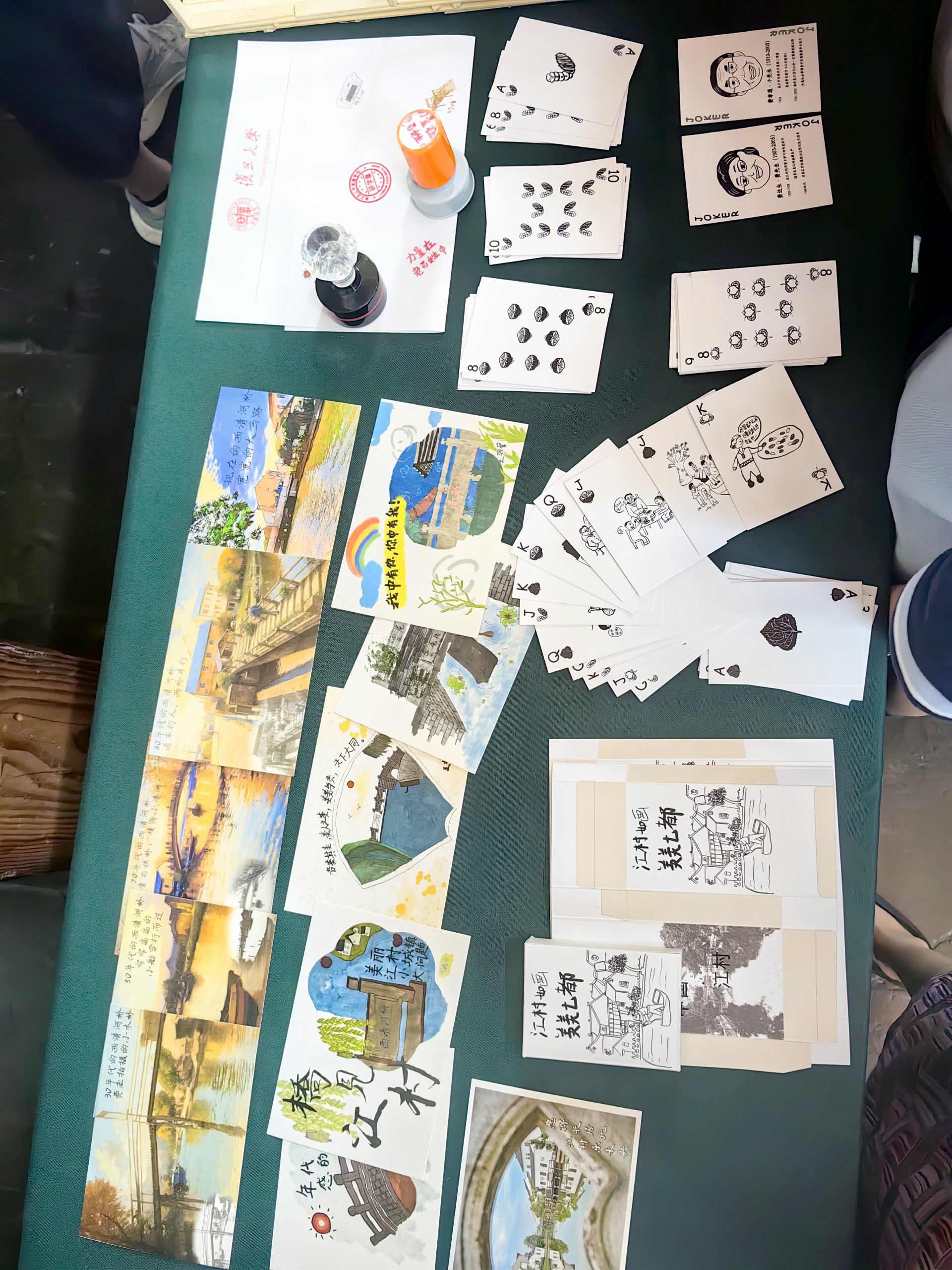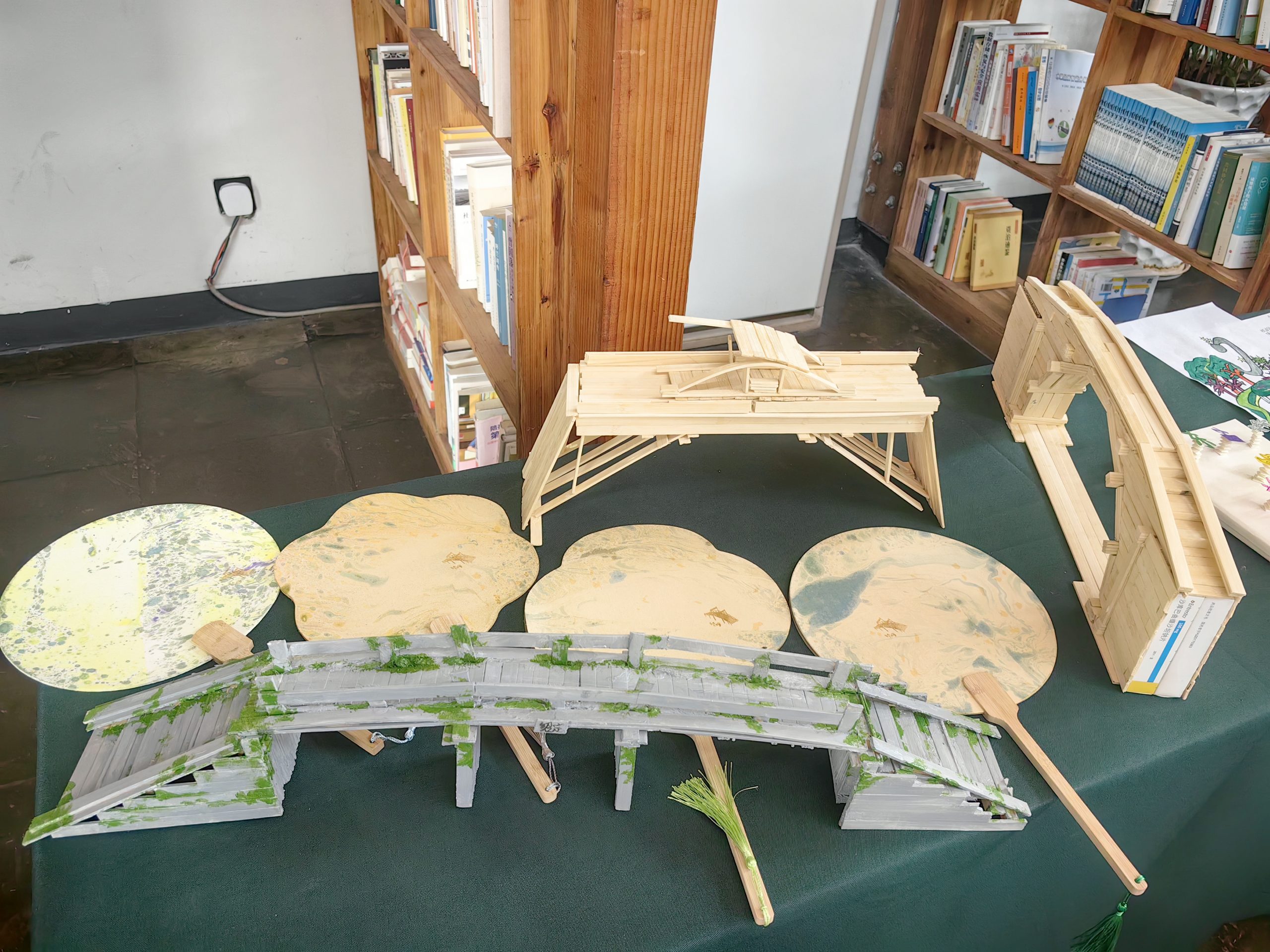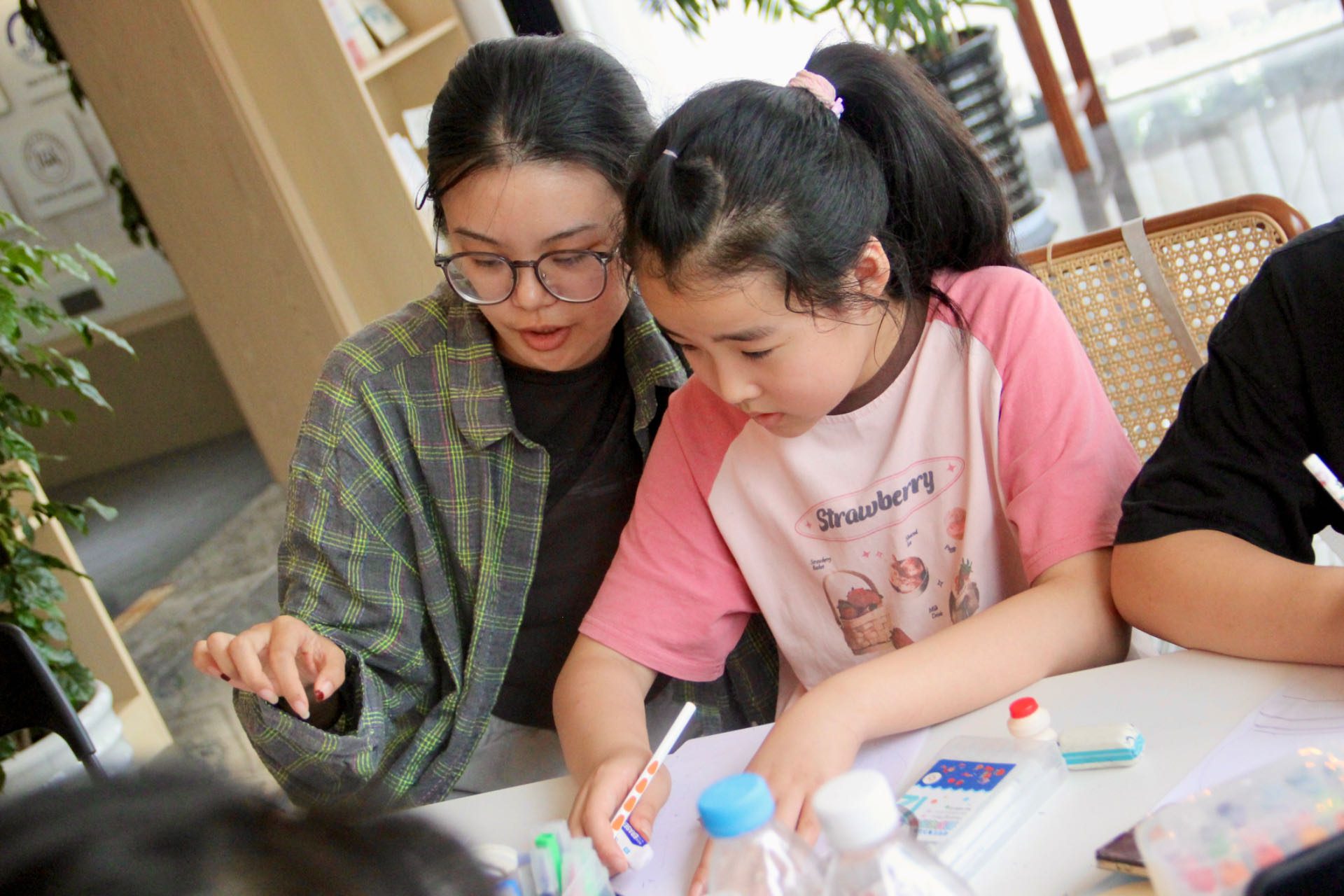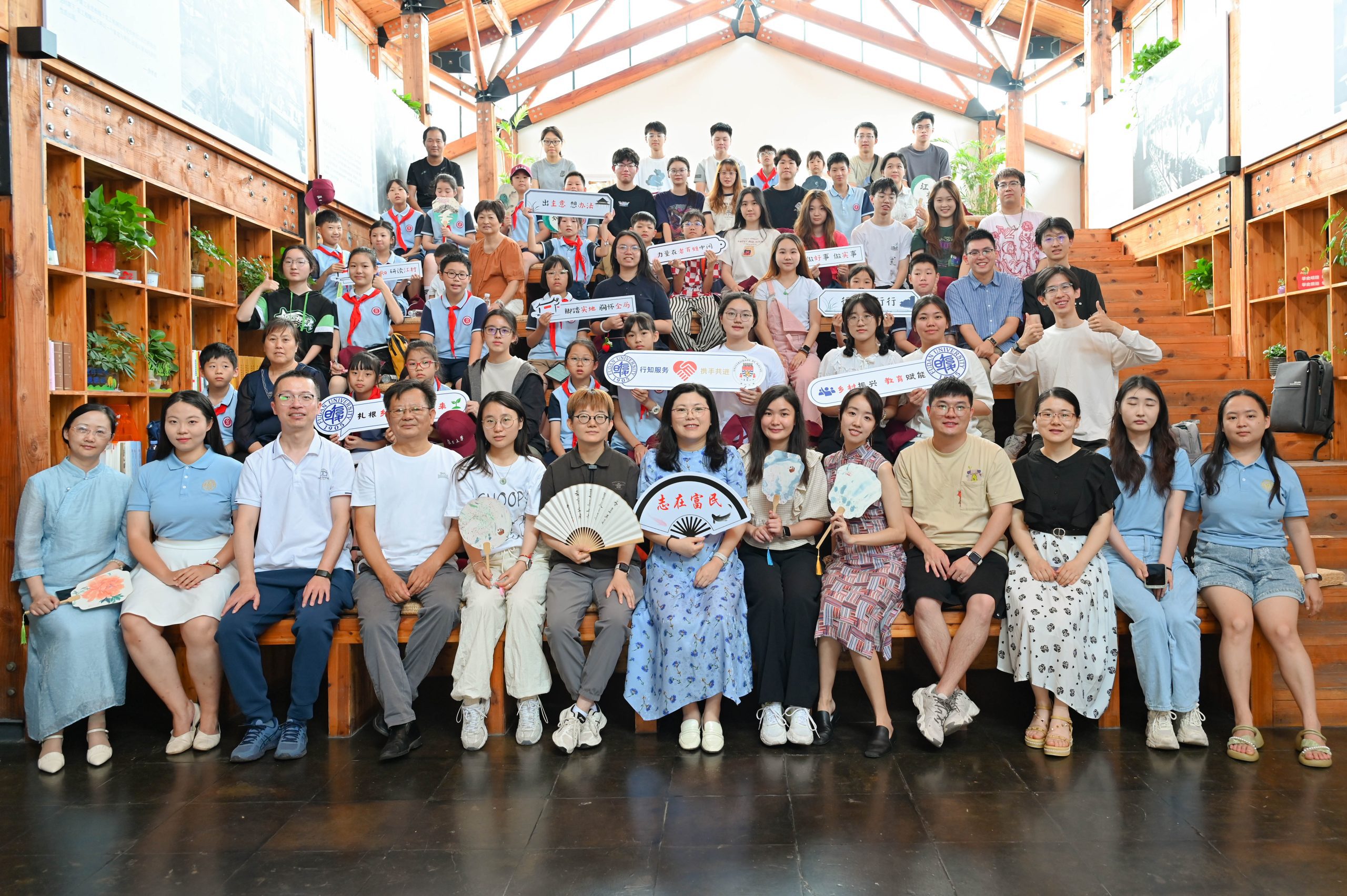UM and Fudan Students Collaborate to Advance Rural Revitalization and Educational Empowerment
澳大與復旦學生攜手推進鄉村振興教育賦能
UM and Fudan Students Collaborate to Advance Rural Revitalization and Educational Empowerment
To deepen the exchange and collaboration between universities in Shanghai and Macau, to enable students to gain a deeper understanding of China’s rural educational resources, and to enhance cultural awareness of Chinese agrarian civilization, 17 Resident Fellows (RF) and students from Henry Fok Pearl Jubilee College (HFPJC) and Cheong Kun Lun College (CKLC) of University of Macau (UM) traveled over a thousand miles to engage in a meaningful summer service-learning activity with Fudan University. This event took place in Jiangcun, China, which is known as a “window for the world to understand China’s rural areas, from July 8 to 19, 2024.” The activity was led by RF Chang Kit Peng from HFPJC and Fang Shimin from CKLC.
UM students first participated in a three-day intensive training at Fudan University, where they learned about the crucial role of education in rural revitalization and studied interdisciplinary problem-based learning. They mastered core concepts and research methods of educational empowerment, laying a solid foundation for rendering subsequent practical activities. This service learning experience not only included comprehensive theoretical background knowledge but also featured an in-depth cultural exploration in Jiangcun, Jiangsu, China. The aim was to inject new insight and vitality into rural education and the development of future rural builders.
During the exploration in Jiangcun, UM, Fudan, and Jiangcun Experimental School’s teachers and students were divided into five groups: “The Story of Fei Xiaotong and Jiangcun”, “The Evolution of Education in Jiangcun”, and three focus groups on “Exploring Jiangcun’s Ancient Bridges”. The groups engaged in various exploration activities in Jiangcun. The “Story of Fei Xiaotong and Jiangcun” group conducted interviews with residents, they visited the Fei Xiaotong Memorial Hall and reviewed historical materials to delve into the connection between Fei Xiaotong and Jiangcun. The “Evolution of Education in Jiangcun” group visited the village to find mysterious friends and closely interacted with residents to understand the educational development process and the differences between urban and rural education. The “Exploring Jiangcun’s Ancient Bridges” groups investigated historical sites and reviewed village records to explore the history and culture of Jiangcun’s ancient bridges. The group studying “Hong’en Bridge” created catchy rhymes, while the “Guangfu Bridge” group collected and organized patterns on the bridge, learning about its history and producing a brochure on ancient bridge conservation. The “Dongmiao Bridge” group created a physical bridge model, showcasing the harmonious blend of ancient charm and modern technology. These exploration activities not only enhanced the teachers’ and students’ understanding of Jiangcun’s history and culture but also promoted the excavation and preservation of local educational and cultural resources.
At the closing ceremony of the programme, each group showcased their research findings to residents and students’ parents in the Jiangcun Cultural Hall, receiving enthusiastic responses and bringing substantial cultural and educational outcomes to the community. Through the combination of theory and practice, teachers and students from both universities conducted in-depth discussions on important topics such as the relationship between rural revitalization and education, providing strong support for implementing the rural revitalization strategy.
Additionally, the teachers and students visited the Jiangcun Elderly Center, bringing joy to the elderly. During interactions, they discovered that the elders possessed unique skills, and the lively tunes of Wu songs (Yangcheng Fishery Songs), a form of intangible cultural heritage, captivated the teachers and students. Finally, UM students toured museums, historical sites, and modern architecture in Shanghai and Jiangsu. They gathered information and stories about the attractions in advance, acting as “tour guides” to provide detailed introductions to other members.
Through exploring their hometown with primary school students from Jiangcun Experimental School, conducting field surveys, and engaging in interactive exchanges, the college students not only deepened their understanding of Jiangcun’s unique culture and history but also gained a deeper appreciation for rural education through practical experience. They gained a comprehensive understanding of China’s development and cultural heritage from ancient times to the present, experienced the scenery of the water towns in Jiangsu, and forged deep friendships through a series of icebreaking, interactive, and discussion activities!
Text: Lin Yunyi, Ao U Ian
Photos: Liang Mingxuan etc
澳大與復旦學生攜手推進鄉村振興教育賦能
為深化滬澳高校教育領域的交流與合作,同時讓學生深入瞭解我國鄉土教育資源及提升中華農耕文明的文化自覺,在澳門大學霍英東珍禧書院導師曾結萍與張崑崙書院導師方詩敏的帶領下,十七名師生跨越千里,於2024年7月8日至19日,與復旦大學的師生共同前往被譽爲“世界瞭解中國農村的窗口”的中國·江村,開展一場意義非凡的暑期服務學習課程。
澳大學生首先在復旦大學進行了三天的理論學習,理解教育在鄉村振興中的關鍵作用,並學習跨學科問題導向理論,掌握教育賦能的核心理念及研究方法,為後續的實踐活動奠定基礎。是次服務學習不僅包含詳實的理論知識學習,更在江蘇吳江開弦弓村開展了一場扎根田野的文化探索,旨在爲鄉村教育和未來鄉村建設者的發展注入新的智慧和活力。
在江村實踐期間,澳大、復旦與江村實驗學校的師生分成五個小組,分別是“費孝通先生與江村的故事”,“江村教育的變遷”和三組“行知江村古橋”,在附近地區開展豐富的探索活動。“費孝通先生與江村的故事”小組通過訪談當地村民、參觀費孝通紀念館及查閱相關史料,深入探討了費孝通與江村的歷史淵源。“江村教育的變遷”小組在村子裏,與村民們密切交談,瞭解當地教育的環境及發展歷程。“行知江村古橋”小組則通過尋找古迹、翻閱村志等方式,江村古橋的歷史與文化。探究“洪恩橋”的小組創作了朗朗上口的歌謠,“廣福橋”小組收集整理了古橋的紋飾,瞭解了“廣福橋”的歷史,並製作了古橋保護宣傳手册。“東廟橋”小組對古橋進行了建模,製作了“東廟橋”的實物模型,展示了古橋韵味與現代科技的巧妙結合。小組的探索活動不僅增强了師生們對江村歷史與文化的理解,也推動了當地教育與文化資源的挖掘和傳承。
經過數天的文化探索,在課程結營儀式上,各小組在當地的江村文化大禮堂向村民和當地學生家長展示研究成果,贏得了熱烈反響,並為江村社區帶來了實質性的文化和教育成果。通過理論與實踐的結合,兩校師生在鄉村振興和教育的關係等重要課題上進行了深入探討,爲鄉村振興戰略的實施提供了有力支持。
此外,兩校師生更到江村的老人中心,為老人帶來歡樂,在互動期間,發現老人們身懷絕技,一首首非物質文化遺產—吳歌(陽澄漁歌)琅琅上口,師生們都聽出耳油!最後,澳大學生還參觀了上海和江蘇的博物館、歷史古跡和現代化建築,院生們提前蒐集景點資料和小故事,並充當“導賞員”,向其他成員詳盡介紹。
通過與江村實驗學校的小學生們一起探索家鄉,開展實地調查和互動交流,不僅加深了對江村獨特文化與歷史的理解,還在實踐中深化了對鄉村教育的認識,促進鄉村社會可持續發展,了解教育創新賦能鄉村未來建設者的多元路徑。院生們深入地了解到從古到今我國的發展脈絡和文化底蘊,深入體驗江浙地區水鄉漊港的景色,更透過一系列的破冰、互動和探討中收獲深厚的友誼!
撰文: 林芸伊 區宇欣
圖片:梁明暄等師生
